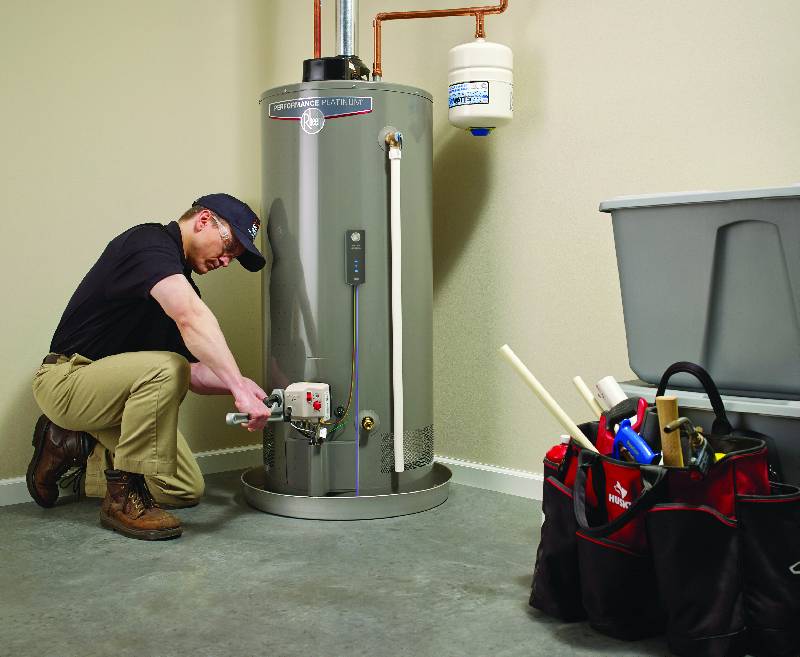Managing Standard Heater Problems
Managing Standard Heater Problems
Blog Article
We've come across this post pertaining to Common Problems with Tank Water Heaters listed below on the web and thought it made sense to talk about it with you on my blog.

Visualize starting your day without your regular hot shower. That currently sets a bad tone for the rest of your day.
Every house requires a reliable water heater, however just a couple of know just how to manage one. One simple method to maintain your water heater in top form is to look for faults on a regular basis and also fix them as soon as they appear.
Keep in mind to switch off your hot water heater prior to sniffing around for faults. These are the water heater faults you are most likely to encounter.
Water too warm or as well chilly
Every water heater has a thermostat that determines how warm the water obtains. If the water entering your house is too warm in spite of setting a hassle-free optimum temperature, your thermostat could be malfunctioning.
On the other hand, too cold water may result from a stopped working thermostat, a damaged circuit, or inappropriate gas flow. For instance, if you utilize a gas water heater with a busted pilot light, you would certainly get cold water, even if the thermostat remains in ideal problem. For electric heaters, a blown fuse might be the culprit.
Inadequate hot water
Water heaters can be found in many sizes, relying on your hot water demands. If you run out of warm water prior to everybody has actually had a bathroom, your water heater is too little for your family size. You must take into consideration installing a larger water heater storage tank or selecting a tankless hot water heater, which uses up less space and is more resilient.
Unusual noises
There are at least 5 sort of sounds you can learn through a hot water heater, however one of the most typical interpretation is that it's time for the water heater to retire.
First of all, you should know with the regular seems a water heater makes. An electrical heating system may seem different from a gas-powered one.
Standing out or banging noises usually suggest there is a piece of sediment in your containers, as well as it's time to cleanse it out. On the other hand, whistling or hissing noises may merely be your shutoffs letting some stress off.
Water leaks
Leaks can come from pipelines, water connections, shutoffs, or in the worst-case scenario, the container itself. Over time, water will certainly rust the container, and discover its escape. If this happens, you require to change your water heater immediately.
Nonetheless, before your modification your entire container, be sure that all pipelines remain in area and that each shutoff functions perfectly. If you still need help identifying a leakage, call your plumber.
Rust-colored water
Rust-colored water indicates among your hot water heater elements is corroded. Maybe the anode rod, or the storage tank itself. Your plumber will be able to identify which it is.
Lukewarm water
Regardless of exactly how high you established the thermostat, you will not obtain any type of warm water out of a heating unit well past its prime. A hot water heater's effectiveness may reduce with time.
You will additionally obtain warm water if your pipes have a cross connection. This means that when you activate a faucet, hot water from the heater flows in alongside normal, cold water. A cross link is easy to place. If your hot water faucets still follow shutting the hot water heater valves, you have a cross link.
Discoloured Water
Rust is a significant reason for unclean or discoloured water. Rust within the water container or a stopping working anode pole might create this discolouration. The anode rod secures the tank from rusting on the inside and must be examined yearly. Without a pole or a properly working anode pole, the hot water rapidly wears away inside the container. Contact an expert hot water heater service technician to determine if replacing the anode rod will take care of the trouble; otherwise, change your hot water heater.
Conclusion
Ideally, your water heater can last 10 years before you require a change. Nonetheless, after the 10-year mark, you might experience any of these mistakes much more frequently. At this moment, you ought to add a new hot water heater to your budget plan.
How To Troubleshoot 3 Common Water Heater Problems in Twin Cities
The Water Heater Is Leaking
A leaky cold water inlet valve A loose pipe fitting A leaky temperature and pressure relief valve A corroded anode rod A cracked tank Turn Off Your Water Heater:
Shut off your gas water heater by turning the gas valve on the unit to the “OFF” position. Shut off your electric water by switching its power off at your electrical panel. Look for a two-pole breaker labeled “water heater” and turn it to the “OFF” position. Move the ball valve connected to the water heater to be perpendicular to the piping at a 90° angle. Look for the Leak:
Depending on whether the water is coming from the tank's top or bottom, you’ll want to look for the leak in different locations.
If the leak comes from the top of the tank, carefully look for water escaping from the cold water inlet valve or loose pipe fittings. Rusted hot and cold water valves can have loose connections with the tank, with water leaking out of them.
https://mspplumbingheatingair.com/blog/how-to-troubleshoot-3-common-water-heater-problems
Do you enjoy more info about Common Problems with Your Home Water Heater? Write a review down below. We would be pleased to know your ideas about this posting. We hope to see you back again before long. So long as you liked our blog entry plz be sure to pass it around. Thanks for your time. Come back soon.
Call, we deliver! Report this page